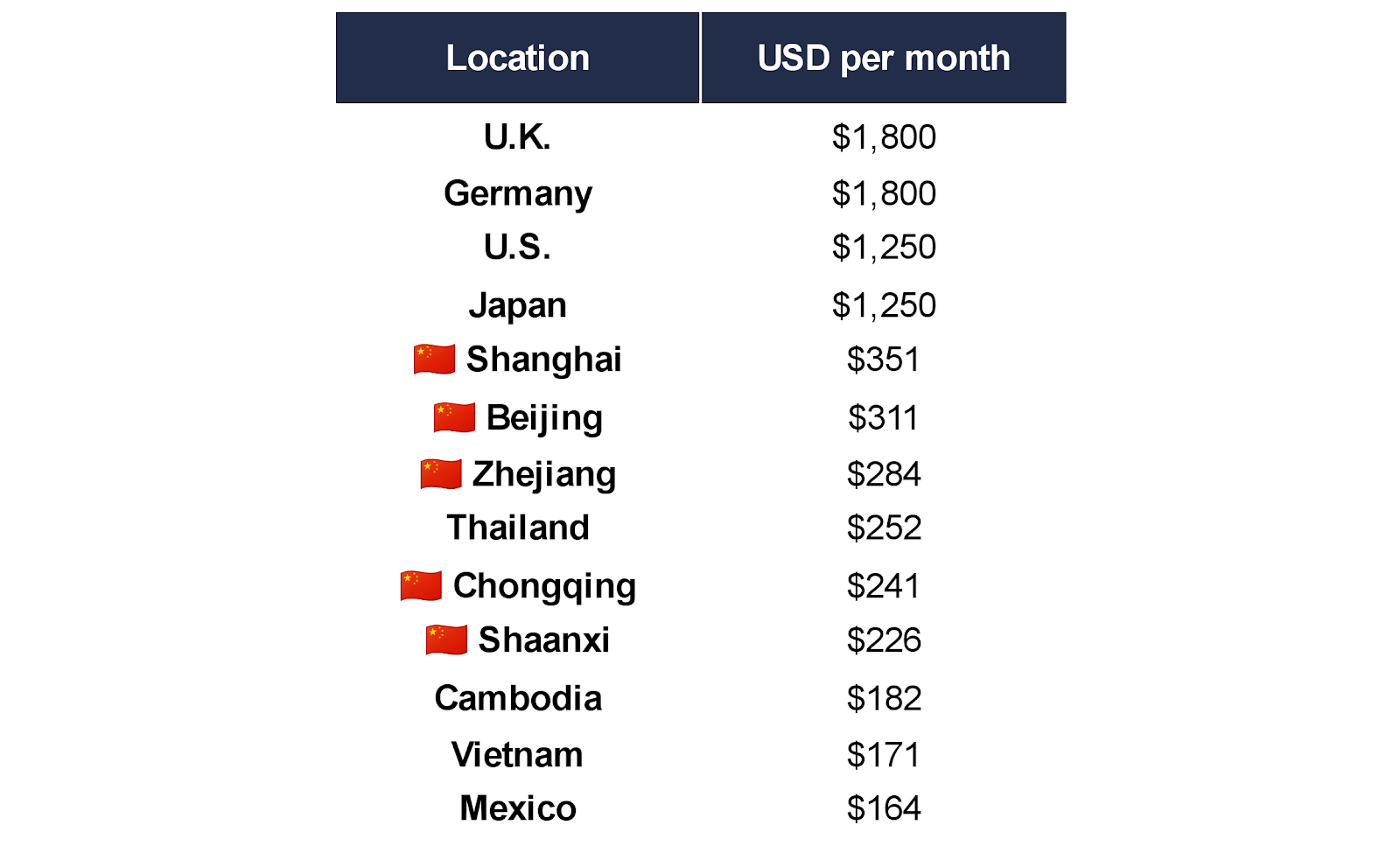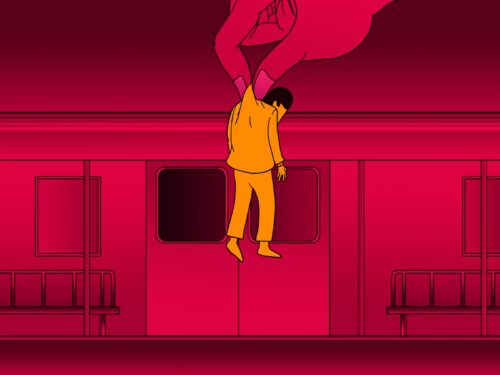Weekly Briefing: Trade war incoherence; no gay marriage for China; don’t bring dead bodies to school


Hello, readers! The China Project Weekly Briefing details the most important China news from the past week. It also comes in the form of a free newsletter — sign up using the box at the top of our homepage.
~
Protests continue to roil Hong Kong. See Google News for the latest, or this big picture analysis by Evan Osnos in the New Yorker (porous paywall) titled: “China’s Hong Kong dilemma — The mass demonstrations are in bold defiance of Chinese authority — but a crackdown could be incalculably costly.”
Sidney Rittenberg was an American soldier who stayed in China after the Second World War and became the first American member of the Chinese Communist Party, and an advisor to the Party. He also spent 16 years in solitary confinement. He died over the weekend aged 98. The China Project’s Sinica Podcast did a fascinating two-part interview with Rittenberg in 2017: Listen here: An interview with a revolutionary and Sidney Rittenberg on solitary confinement and more.
What’s next in China in the age of trade wars and Hong Kong protests? Our NEXT China conference is all about the trends that define the relationship between China and the world. Early bird tickets are on sale, and the roster of speakers is growing by the day.
—The Editors
1. Trade war incoherence

Photo credit: The China Project illustration
The U.S.-China techno-trade war continues to spin out of control.
There was a sliver of hope for moderation on August 13, when Trump made his first public admission that Americans pay for tariffs, and delayed some of the upcoming taxes until December 15 to avoid hurting U.S. consumers’ holiday shopping.
But only 10 days later, right after China announced its retaliation to these taxes on its exports, Trump launched into a fury on Twitter. In a series of tweets, he:
- Called the Chinese leader, Xi Jinping, an “enemy” of the U.S.
- Claimed, “We don’t need China and, frankly, would be far better off without them.”
- Declared, “Our great American companies are hereby ordered to immediately start looking for an alternative to China, including bringing your companies HOME and making your products in the USA.”
- Announced even higher tariffs: Raising taxes from 25 to 30 percent on some Chinese goods, and from 10 to 15 percent on others.
Since then, Trump has been even more incoherent than usual on China. Over the weekend and today, he was twice contradicted on his communications on the trade war.
- First by the White House. Trump told reporters, “I have second thoughts about everything,” in response to a question about the tariff escalation, but the White House quickly acted to rescue Trump’s macho image, as a spokesperson clarified his actual regret is “not raising the tariffs higher.”
- Then by the Chinese Foreign Ministry. Trump claimed that “China called last night our top trade people and said let’s get back to the table,” and added in a tweet, “Talks are continuing!” But a Chinese Foreign Ministry spokesperson responded, “I am not aware of the phone calls over the weekend you mentioned.”
LINKS TO LEARN MORE
Here are three aspects of the trade war to keep in mind as the downward spiral continues:
- Trump’s tariffs are taxes on American companies and consumers — according to JPMorgan, the average American household is already paying $600 more per year with the current levels of tariffs, and further tariffs could bump that to $1000 per year or more.
- Trump may or may not have the authority to actually order U.S. companies to leave China — the law hasn’t been tested in such an extreme way before, experts told the New York Times. But even if supply chains are too integrated to realistically break up in the short term, a trend toward “decoupling” of the U.S. and Chinese economies is happening before our eyes. Thailand, more than the U.S., is a big beneficiary of relocating factories.
- “China’s growth is slowing, but not because of the trade war.” That’s the conclusion of an analysis by Nicholas Lardy of the Peterson Institute for International Economics.
2. No gay marriage, but sexual harassment law is strengthened

Photo credit: The China Project illustration
As we say every time we write about LGBT issues in China, the country is a long way off from achieving marriage equality, like Taiwan did in May.
This was confirmed last week by a spokesperson for the legal affairs commission of the National People’s Congress. “Chinese law only allowed for marriage between one man and one woman,” the spokesperson emphasized, adding, “This rule suits our country’s national condition and historical and cultural traditions…As far as I know, the vast majority of countries in the world do not recognize the legalization of same-sex marriage.”
But another part of China’s legal code is being updated: An update to China’s Civil Code will no longer limit provisions covering sexual harassment to places of employment, according to the Beijing News (in Chinese).
Beijing is taking sexual harassment seriously: On the same day that news of the legal code broke, the topic was the subject of the top opinion piece (in Chinese) on the website of the People’s Daily, the Chinese Communist Party’s mouthpiece.
3. The fake news of College Daily

Photo credit: The China Project illustration
College Daily is a Chinese language website aimed at Chinese students in the U.S. The New Yorker’s Han Zhang has written an illuminating profile of the company: The “post-truth” publication where Chinese students in America get their news (porous paywall). It’s well worth reading the whole piece. Here are some of the revelations:
- With “more than a million active readers a day” on the social media platform WeChat and articles designed to be shared and go viral, it would be “hard to find a Chinese student in America who doesn’t regularly encounter College Daily content, intentionally or not.”
- Most of these students probably do not follow U.S. news sources and social media. Instead they get news “on their phones, often from College Daily, in a stream of memes and Internet-speak.”
- The site began in 2014 as “a bare-bones survival guide for American campus life, with vaporous posts about boosting your G.P.A. and planning for finals week.” But it is now much more like a sensationalist newspaper which offers “Chinese news delivered with nationalistic overtones; tabloid tales of Chinese students living overseas (sex, drugs, murders, and missing women appear frequently); and news from the U.S. and the celebrity world.”
- Some articles are simply made up: one of College Daily’s more popular writers describes how one article written in the first person about a Syrian classmate who cried after seeing video of Chinese New Year fireworks was written at the direction of the company’s founder. College Daily also “aggregates content sourced from Infowars and RT, the Russian government-backed news outlet.”
- In 2017, Chinese social media users attacked a University of Maryland student named Yáng Shūpíng 杨舒平 who gave a commencement speech praising the fresh air and freedom of expression in the U.S. The vector that made Yang’s speech go viral was a College Daily story. Yang was hounded off the internet. The New Yorker points out that “‘Shaming China’ is something of a buzz phrase at College Daily: as of February, it had appeared on the site more than a hundred and forty-five times.”
- The company’s founder “said that College Daily’s stories accurately reflect its readership’s disillusionment with America, particularly when they compare the U.S. with China. ‘Especially after the 2016 election, our readers see how divided a society America is.’”
College Daily later fired back at the New Yorker, accusing it of bias and fabrication.
4. Don’t bring dead bodies to school

Photo credit: The China Project illustration
Sixth Tone reports on new guidelines (in Chinese) issued by the Ministry of Education and other government departments including the Ministry of Public Security aimed at preventing “xiàonào” (校闹) — violence against school staff and other behavior from parents who feel their children have been mistreated. This is a frequent occurrence in China when parents “take their case to campus in an effort to gain visibility and increase their chances of receiving favorable compensation.”
The guidelines list eight types of banned xiaonao.
- Assaulting staff, injuring people or deliberately damaging public and private property.
- Damaging school facilities and equipment.
- Setting obstacles in schools: “hanging banners, setting off firecrackers, playing somber music, laying funeral wreaths, cutting off power or water, and blocking school gates.”
- Bringing dead bodies to school grounds and public places. (Parents of children who die at school “have been known to take the body to campus as a means of expressing their outrage and sorrow.”)
- Preventing staff and students from leaving campus.
- Harassing and stalking school staff.
- Taking explosive or flammable goods to school.
- Disrupting classes.
5. Rising minimum wages

Data sources: SCMP / Wikipedia
The South China Morning Post reports that the city of Beijing has increased minimum monthly wages. Several cities and provinces have recently increased minimum wages.
Above is a chart of five current minimum wages in China (converted to USD), plus a sampling of other countries, according to numbers compiled on Wikipedia. Cambodia’s minimum wage is only set at this level for the garment and shoe manufacturing industry.
~
The China Project Weekly Briefing is sent as a free newsletter every week — subscribe by entering your email into the box at the top of our homepage. To get daily roundups of China news, access to a members-only Slack channel and exclusive expert chats, and discounts on other The China Project events and products, sign up for The China Project Access today!





